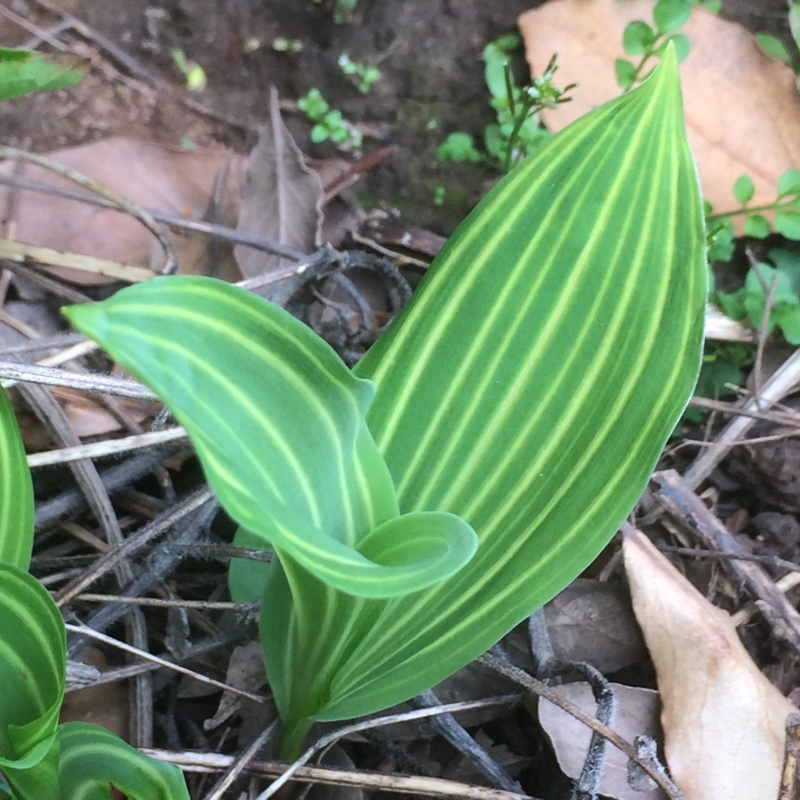
Convallaria majalis 'Albostriata'
Lily of the Valley 'Albostriata'
A popular cottage garden perennial with elliptic leaves and arching racemes of white, pendulous, bell-shaped flowers that are very fragrant. They can spread to form extensive colonies after a few years. 'Albostriata' has leaves that are striped green and cream
Contributed by @tiggrx
-
Full sun to deep shade
-
Occasional watering
-
Full Frost Hardy: 5F (-15°C)
-
Moist and fertile
Common name
Lily of the Valley 'Albostriata'
Latin name
Convallaria majalis 'Albostriata'
type
Rhizomatous perennial
family
Asparagaceae
ph
5.0 - 8.5 Acid - Neutral
Plant & bloom calendar
-
Best time to plant
-
When the plant will bloom
full grown dimensions
 0.50 M
0.30 M
0.50 M
0.30 M
Convallaria majalis 'Albostriata'
A popular cottage garden perennial with elliptic leaves and arching racemes of white, pendulous, bell-shaped flowers that are very fragrant. They can spread to form extensive colonies after a few years. 'Albostriata' has leaves that are striped green and cream
Planting outdoors
From Early Spring TO Mid Spring
Plant out container grown seedlings or plants in fertile compost rich soil in a shaded position in early to mid spring.
Propagation by Division
From Late Summer TO Early Autumn
Propagate by division in late summer to early autumn. Lift a clump of the plants, separate them, and replant immediately.
Flowering season
From Mid Spring TO Early Summer
Spikes of white nodding, bell shaped fragrant flowers appear in mid spring to early summer.
Propagating by seed
From Mid Autumn TO Mid Autumn
Fill a seed tray, modular tray, or pot with seed compost (eg John Innes Seed compost), or use 50% multi-purpose compost mixed with 50% perlite or coarse grit, and firm it down. Water the compost, and let the surplus water drain out. Sow the seeds thinly, or sow one or two per module (depending on the size of the modules) Cover large seeds with sieved compost or vermiculite. Small seeds do not need covering and in fact some, such as Paulownia, need light in order to germinate, so are best left uncovered. Label with the date and type of seed sown.










